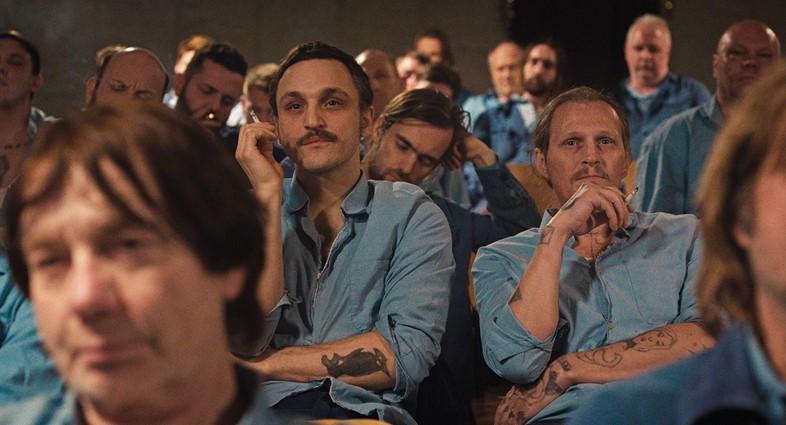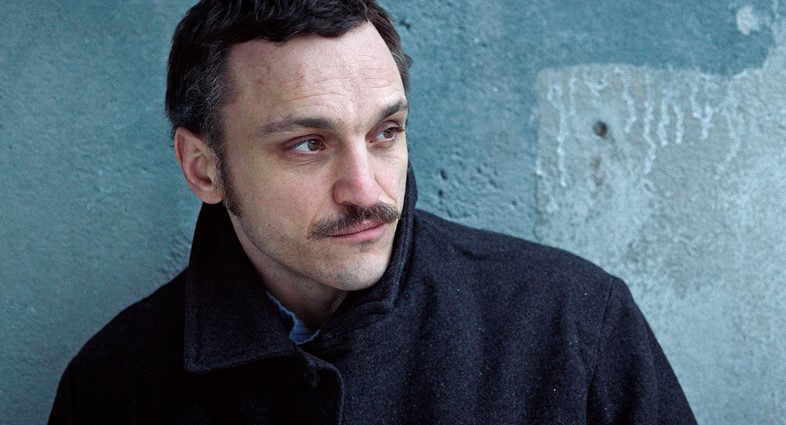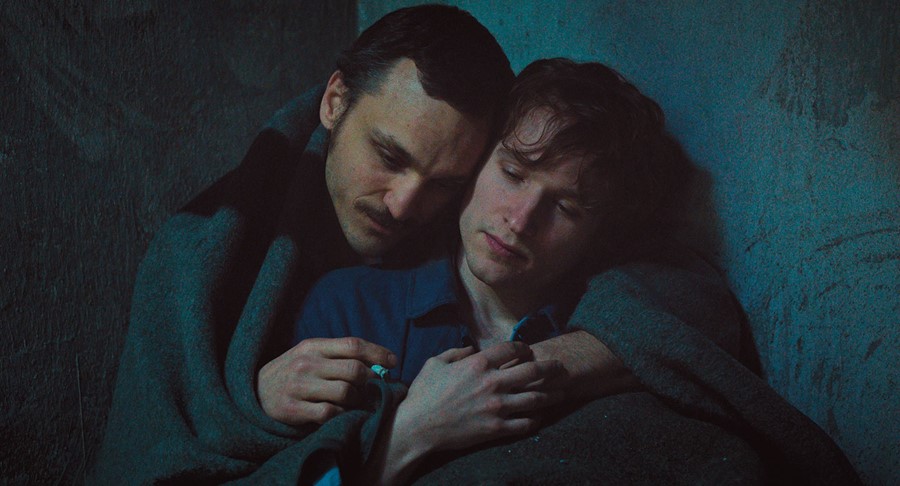Great Freedom is “about longing for someone, about a society that doesn’t allow this to be, and the consequences that one has to take,” says lead actor Franz Rogowski
“I am always scared of wasting time,” says Franz Rogowski from his home in Berlin, two days into a lockdown sentence determined by a positive Covid test, “and time doesn’t care.” As Hans Hoffman, the protagonist in Sebastian Meise’s second feature film, the prize-winning Great Freedom (it picked up a Jury Prize at Cannes last year), Rogowski is similarly at the mercy of time’s passing, albeit under a wholly different set of circumstances.
Set in post-war Germany, Hans is a gay man living in a particularly awful era of Paragraph 175, a piece of homophobic legislation first employed in 1871 and not fully eradicated until 1994. Under its terms, which among other things criminalised sex between men, he is repeatedly incarcerated; when we first meet him it’s 1968, but the extent of his familiarity with the law unfolds over three decades. We soon learn that he initially arrived in 1945, having been liberated from a Nazi concentration camp only to be immediately placed in prison, while another jail stint in 1957 provides one of the film’s few backstories, as Super 8 footage of a young couple in love briefly contradicts the picture’s bleak tone.

“Obviously it’s a story that, for many reasons, is worth telling. There’s the political dimension, but also artistically or cinematographically speaking,” says Rogoswki, recalling his early intrigue. “What interested me was the way that the characters kept secrets, they were not in a position where they had to explain, they would rather exist and breathe, and therefore have dignity. For me it’s not a ‘gay movie’, it’s a love story; it’s about longing for someone, about a society that doesn’t allow this to be, and the consequences that one has to take.”
Working with Meise was a collaborative experience, he says, which began with the pair gaining trust over drinks. “The most important thing for us, in the beginning, was that we could share some time in a bar and look in each other’s eyes,” he explains. “That led to extremes of me talking about the camera and maybe changing the lens, to him guiding me through, crafting scenes from scratch. We’d talk about how we wanted to do things, but also more broadly about the structure, and he would integrate those ideas into his script.”

In addition to books, podcasts and Wikipedia, Rogowski’s research included found footage of cottaging – anonymous gay sex in public toilets – in America in the 1950s, from which the film’s opening scenes were also interpreted. “I found them very inspiring, this kind of silent dance between these men,” says the actor. “We tried to open the character and the narrative to a degree where maybe a lot of men and a lot of stories could fit in this character, but I’m not trying to portray a generation or history.” Elsewhere his preparation focused on the concept of structures, both literal and metaphorical. “The thing that gives me the biggest security in acting is when something emotional is created through a structure that you come up with. When you encounter someone, it’s not so much about the words, it’s more about the emotion and energy that you share.”
Growing up in Germany in the late 80s and early 90s, Rogowski was himself privy to a culture informed by Paragraph 175, though only since working on the project has he consciously understood what that means. “Your parents’ reaction towards homosexuality or society’s reactions towards being soft as a man, really had to do with the fact it was actually illegal to be gay – it was dangerous, a crime. It made me realise that some of my childhood experiences were based on structural violence, and I just took them for granted.”
The feature is ambiguously titled – though Meise offers one interpretation, naming the gay bar Hans visits in the film’s final act, ‘Great Freedom’ – and for Rogowski that offered the space to scrutinise his on-set environment, in a former prison near Magdeburg. “It meant a lot [to be filming in a real prison]. This great freedom the movie talks about, I was wondering what it is and I think it might be Hans Hoffman surrendering to the structural violence he’s surrounded by, and therefore finding freedom in accepting the prison he lives in,” he says. “Freedom is something very strange. Some people have it all but they don’t feel free, some have very little and actually, they feel free. Shooting in this prison for many weeks – already in Covid times – it felt like the end of the world, only us remaining in those concrete walls creating our movie, and that felt free and playful.”
Great Freedom is released in the UK on March 11.
